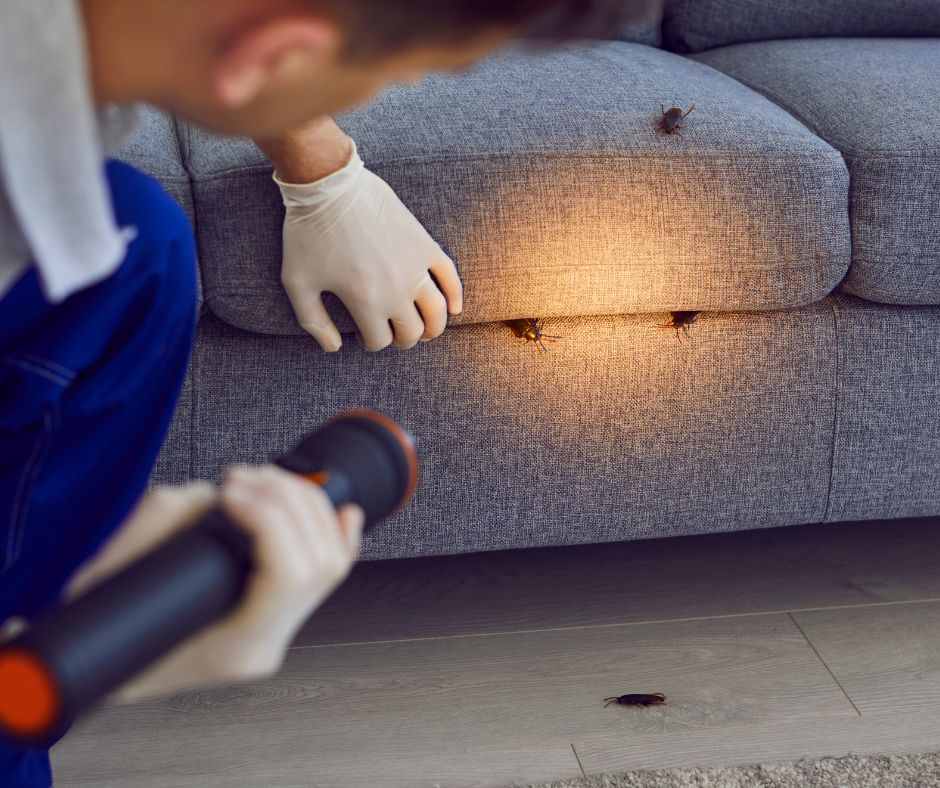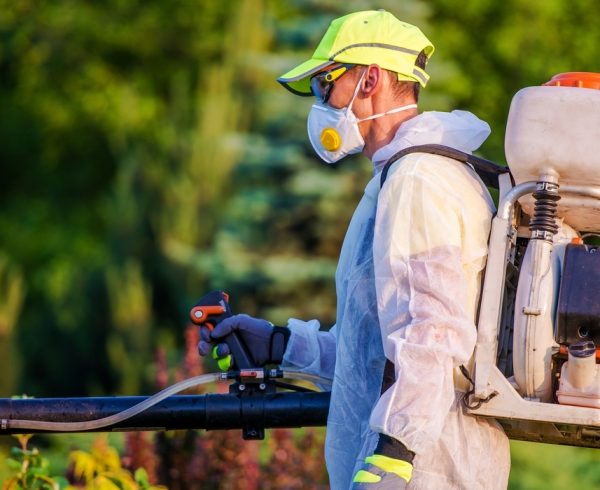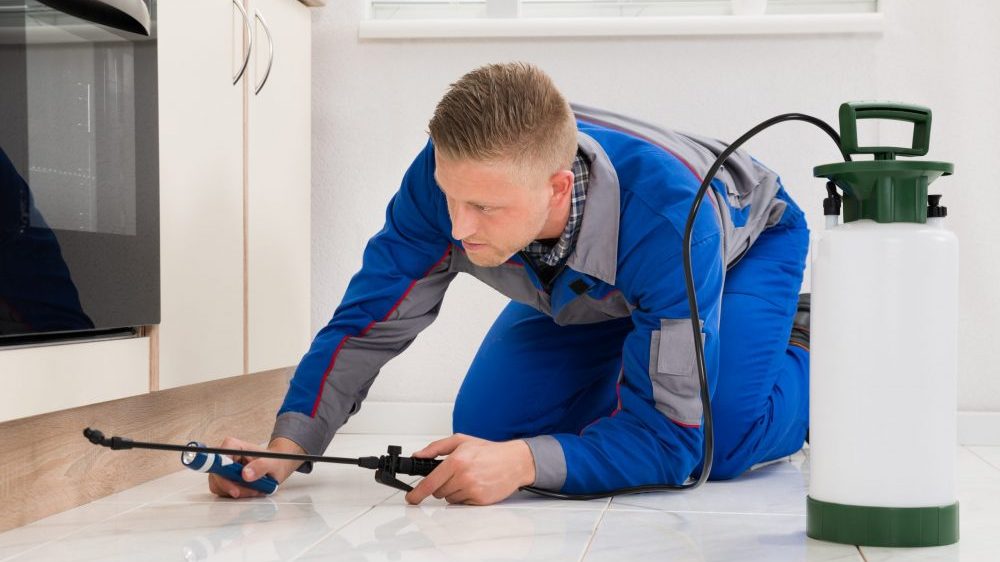Top-Rated Residential Pest Control Service in Port Charlotte
Comprehensive Guide to Comprehending Pest Control Approaches and Their Therapy
Recognizing insect control approaches is vital for efficient administration of unwanted organisms that present threats to health, farming, and residential or commercial property. What variables should be thought about when choosing the suitable pest control method for a details circumstance?
Introduction of Insect Control Approaches
Pest control approaches include a range of approaches designed to take care of and remove unwanted organisms that can harm human wellness, farming, and property. Reliable parasite administration is critical for maintaining the stability of ecological communities and making sure the security of food products. These techniques can be generally classified right into three primary methods: social, mechanical, and biological controls.

Social control entails changing farming techniques or ecological problems to reduce pest establishment and reproduction. Mechanical control counts on physical barriers or tools to stop pest accessibility or directly remove them.
Biological control utilizes all-natural predators, parasites, or microorganisms to regulate pest populations. This technique highlights environmental balance and can include introducing advantageous bugs, such as ladybugs or predatory nematodes, to take care of bug existence.
Integrated bug monitoring (IPM) incorporates these approaches, making use of a holistic method that highlights prevention, surveillance, and accountable management. By employing a mix of these methods, insect control can be more lasting and reliable, minimizing dependence on chemical treatments while protecting human health and the setting.

Chemical Pest Control Solutions
A selection of chemical bug control options are readily available, supplying efficient choices for handling insect populaces when various other methods may drop brief. These services mainly consist of insecticides, herbicides, fungicides, and rodenticides, each designed to target details parasites while lessening injury to non-target organisms.
Insecticides are specifically reliable against a variety of pests, including ants, cockroaches, and termites, and can be categorized as call or systemic representatives. Call pesticides kill pests on get in touch with, while systemic pesticides are soaked up by plants, making them hazardous to insects that feed on them. Herbicides are made use of to control unwanted greenery, whereas fungicides are essential for managing fungal illness that can harm plants and decorative plants.
Rodenticides, created for rodent control, are readily available in different formulas, consisting of baits and tracking powders. It is vital to follow label instructions thoroughly to ensure safety and effectiveness. Additionally, integrated insect management (IPM) principles must be utilized, incorporating chemical remedies with cultural, mechanical, and biological approaches for sustainable bug control. This alternative technique not only improves pest management efficiency but likewise decreases prospective environmental impacts connected with chemical use.
Biological Pest Control Techniques
Organic pest control techniques provide an eco pleasant choice to chemical techniques by making use of all-natural predators, parasites, or pathogens to handle bug populaces. This strategy leverages the environmental connections between organisms, advertising a balanced community while reducing chemical deposit in the environment.
Among the most typical organic control techniques entails the introduction of natural opponents. Ladybugs are used to manage aphid populations, while parasitical wasps can target caterpillars and various other pests. These natural killers efficiently lower pest numbers without harming advantageous insects.
Additionally, microbial representatives such as microorganisms, fungi, and infections are used to contaminate and eliminate particular bugs. Bacillus thuringiensis (Bt), a normally occurring germs, is extensively utilized to manage caterpillars and various other larvae, showcasing the effectiveness of microbial parasite control.

Physical and Mechanical Approaches
Frequently used in incorporated insect monitoring strategies, physical and mechanical techniques act as effective tools for regulating insect populations without using Get the facts chemicals. These techniques rely on physical barriers, catches, and various other mechanical gadgets to stop or eliminate insects, making them eco-friendly alternatives.
Physical techniques consist of using barriers such as insect netting, screens, or row covers that literally block bugs from accessing plants. This is particularly useful in farming settings where plant security is necessary. Furthermore, environment manipulation, such as removing debris and standing water, can minimize insect reproducing sites, thus lessening problems.
Mechanical approaches encompass catches, which can be designed to catch particular parasites. Sticky traps and pheromone traps are typical examples that draw and retain insects, promoting monitoring and control. Vacuuming is one more mechanical approach, effective for eliminating parasites from indoor atmospheres, particularly in situations of infestations.
Preventative Pest Management Strategies
Reliable preventative pest management techniques are essential for maintaining healthy atmospheres and check here lessening pest-related concerns prior to they arise (Pest Control in Port Charlotte, FL). These methods concentrate on proactive actions that decrease the chance of bug infestations by resolving the source

An additional essential technique involves correct landscape design techniques (Pest Control in Port Charlotte, FL). Maintaining plant life trimmed and away from structures can decrease harborage areas for bugs. Carrying out incorporated bug management (IPM) strategies that include checking insect populaces and employing organic controls can foster a well balanced ecosystem that normally suppresses pest numbers.
Education and training for staff and citizens on recognizing early indications of parasite activity are likewise crucial parts of an effective preventative program. By promoting a setting of awareness and caution, companies and property owners can greatly boost their these details bug management efforts and safeguard their spaces versus future infestations.
Conclusion
Finally, effective insect control requires a diverse technique that integrates chemical, biological, and mechanical techniques. Utilizing an Integrated Pest Monitoring (IPM) framework allows for the sustainable management of bugs while decreasing eco-friendly influence. Preventative approaches further enhance the efficacy of these methods, making certain lasting security of health, agriculture, and building. Inevitably, an extensive understanding of these diverse insect control techniques is vital for attaining effective end results in parasite management campaigns.